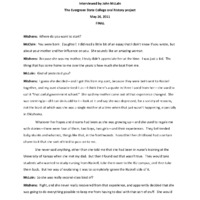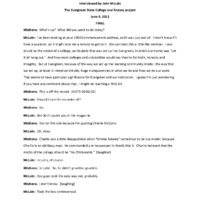Dave Hitchens Oral History Interview
Item
- Identifier
- Title
- Date
- Creator
- Contributor
-
HitchensDave
-
Dave Hitchens Oral History Interview
-
May 26, 2011
-
May 28, 2011
-
June 9, 2011
-
Dave Hitchens
-
John McLain
Position: 318 (16 views)


